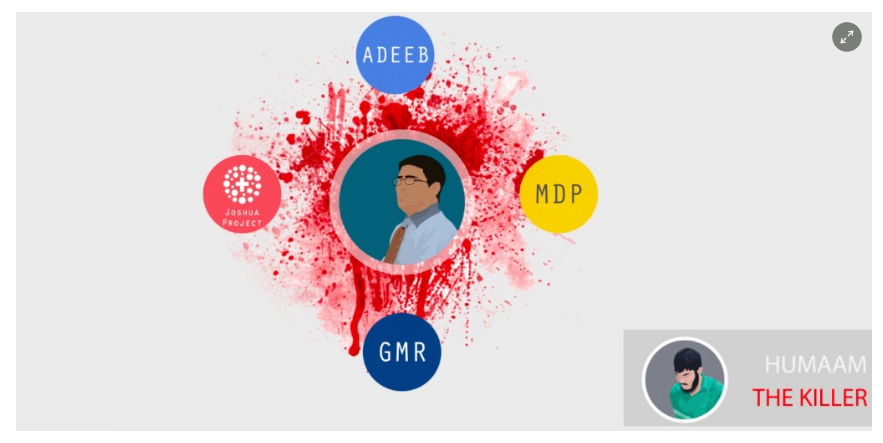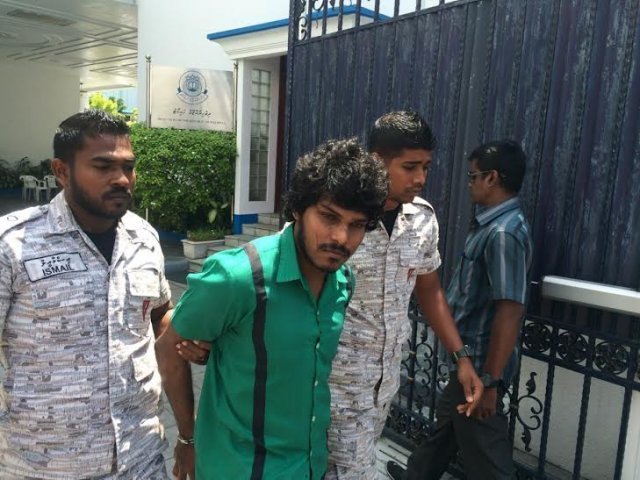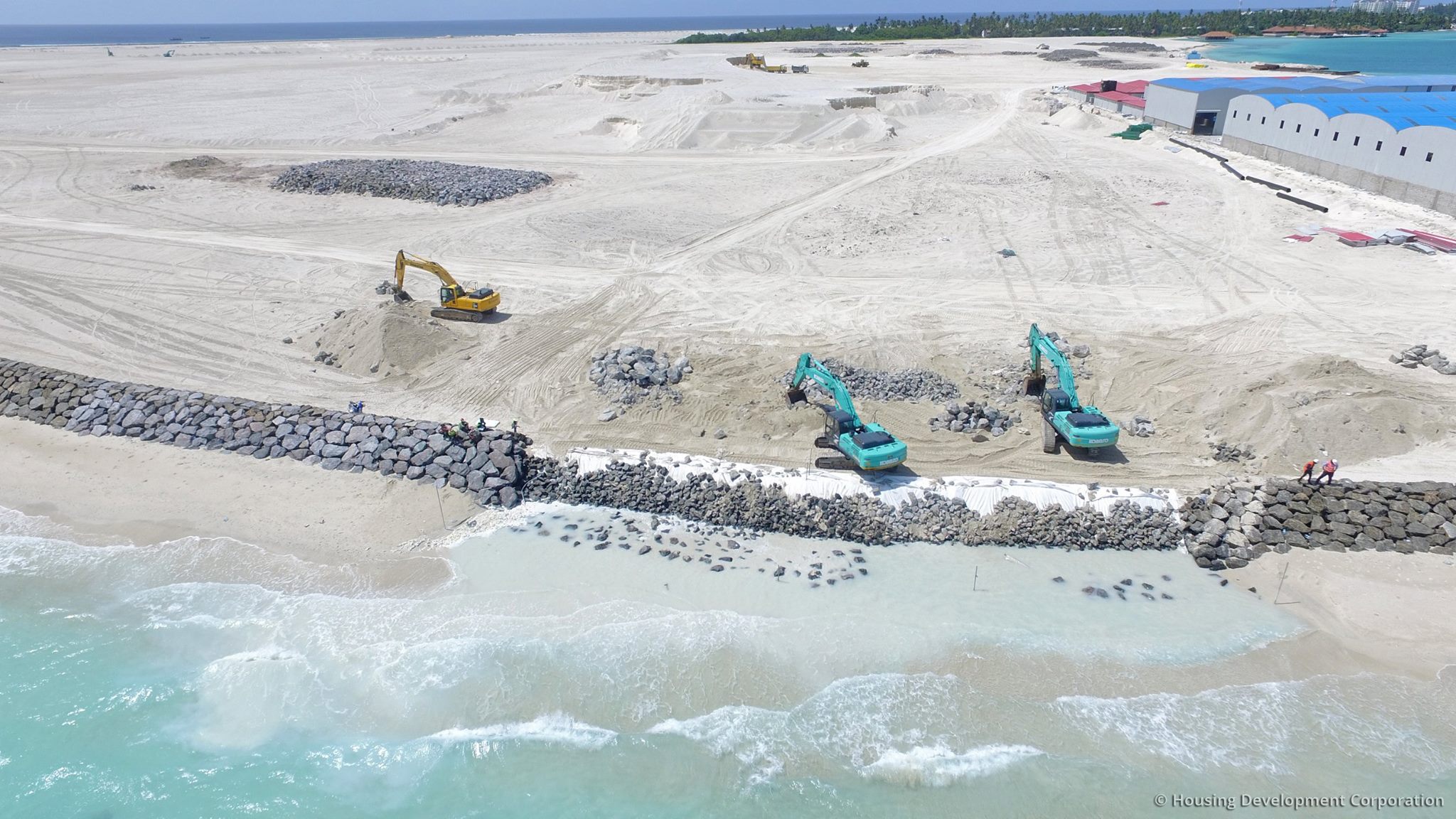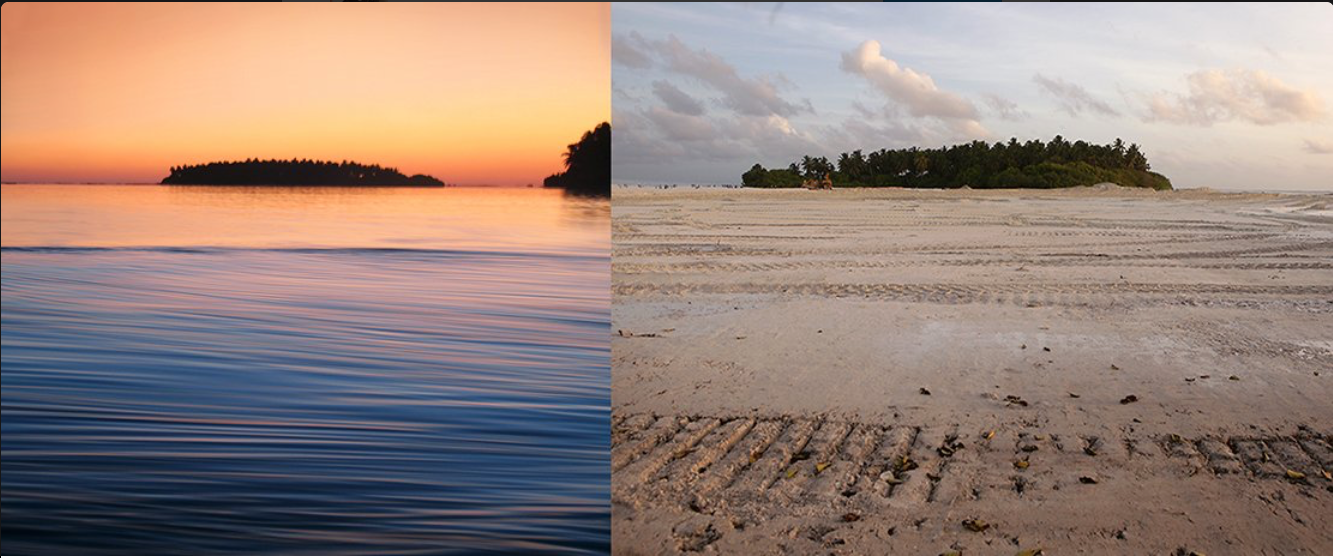What some people call journalism

by Azra Naseem
The illegitimate judiciary of the Maldives has condemned a 22-year-old man, Hussein Humam, to death. If carried out, the final ruling by the Supreme Court will bring to an end Maldives’ moratorium on death penalty which has been in place for over half a century.
The Maldives is in a deep political crisis. The democratic system of governance adopted in 2008 and the separation of powers that this necessitated and entailed are gone; eroded by the authoritarian reversal of the last three years. There has never been as much need for democracy’s fourth estate as there is today.
Sadly, journalism in the Maldives, too, is in turmoil and under attack. While some brave journalists are fighting to uphold the principles of their profession and perform their crucial role as public watchdogs, the government is trying hard to revoke the constitutionally guaranteed freedom of expression. Added to blatant and covert such attempts by the government are the problems of partisan media ownership, self-censorship among journalists and, saddest of all, so-called journalists who throw ethics to the wind or put them up for sale at the slightest temptation.
The following is an English translation of an article published by Mundoo Adam Haleem, Editior in Chief of Avas, an online newspaper with a substantial readership. Haleem describes himself as an “iconic award- winning journalist” and uses Sartre to put himself up on a pedestal [see his Twitter cover photo at top]. Yet, what he writes is totally bereft of facts, journalistic integrity, and respect for the good-names or lives of others.
Translating this was not the most pleasant of tasks, but I felt it is necessary for people–not just Dhivehi speakers–to know the shocking levels parts of the Maldives’ Fourth Estate often sink to in its role as a poodle to the executive. I also felt that foreign parties named in this article should be aware of the very serious accusations being levelled against them.
The role of ‘journalists’ like Haleem, and the establishments that prop such people up, was crucial in bringing to an end the Maldives’ democratic transition. It is playing an equally crucial role in strengthening the current government’s authoritarianism.
The secret of that murder: the wheel of accusations!
- Biggest accusation against MDP
- India’s RAW and GMR involved
- Joshua Project implicated

When the Supreme Court upheld the death sentence handed down to Hussein Humam, the killer of Dr Afrasheem Ali, former Police Commissioer Abdulla Riyaz said: “The trial has ended, the time has come to reveal information about the case.”
Afrasheem was killed between on the night of 1 October 2012 between 11:30 and 1:00 a.m. after he entered his home in H. Funvilu. Afrasheem was the strongest intellectual mind Maldives has seen in recent history. The investigation that began, and is still continuing, to find the secret of that murder is the widest investigation in the Maldives, with the largest number of participants. That included even America’s FBI. While the investigation has found Afrasheem’s killer, the Supreme Court has upheld the death sentence imposed on him, and signs are emerging that the Maldives will end its half a century long moratorium on the death penalty, all types of allegations have mounted around the murder of Afrasheem. Or have been deliberately mounted. So, as Riyaz said, it is now time to chat about this. Shall we turn the wheel of accusations around the secret of that murder?
Islamisation of Knowledge
The moderate Islamic policy of Afrasheem was based on the concept ‘Islamisation of Knowledge’. This is a concept that proves the religion of Islam is alive, and which enlivens Islam with thinking and logic. This concept is causing Islam to spread wider every day in countries of the Western world. Scholars who follow this concept are among Islamic scholars most hated by Christians. While there are major religious scholars in the world who follow this school of thought, some such scholars have been killed in very shocking and cruel ways. Afrasheem is a link in this chain. One of the leading figures of this Manhaj Farooq[1] was murdered in broad daylight in his own home with shots to the chest [errors as in original].
Christian missionaries were behind the murders of most scholars. They murder such scholars and blame it on others. By providing different narratives. The narrative of the murder of Afrasheem is being written like this in the book of Maldivian history. Killing all Islamisation of Knowledge scholars until none are left is being carried out by Christian missionaries under a very big plan. Reason being that the Manhaj is causing Islam to spread and grow bigger in the world.
A baseless accusation
Former Police Commissioner Abdulla Riyaz was a leader of the Afrasheem case investigation. Abdulla Riyaz’s statement that he will ‘reveal important truths about Afrasheem’s murder when the time comes’, the way he said it and his tone, as well as the political camp Riyaz was in at the time provided the opportunity for those who flip accusations about Afrasheem’s murder like a roshi to take them in the direction of President Yameen.
What does he say now? Now he says ‘The investigation has no evidence to indicate President Abdulla Yameen’s involvement” in the killing of Afrasheem.
According to Riyaz, when he left the Police, the investigation was looking at parties suspected of financing the contract killing. Therefore, this puts an end to the steering of Riyaz’s remarks towards Yameen.
The next opportunity to free people who were first accused of the murder, to create new accusations, and then to steer those accusations towards President Yameen arose when former Home Minister Umar Naseer spoke at the PPM’s first presidential primaries connecting President Yameen and Afrasheem’s murder, and when what he said was ‘misquoted’ in the media.
When you look at the reality, Umar didn’t say Yameen is involved in the murder of Afrasheem. But what he said was very much turned in the media.
President Yameen and Umar were rivals in the most competitive presidential primary held in the Maldives to date. Pointing out each other’s deficiencies and shortcomings is done in presidential primary debates. That is the scene we see in America. In the last primary there were very few debates in which Donald Trump did not shout filth at rival candidates. Also made many baseless accusations of crime.
This is done in primaries to show ‘cross examination’ to the public. Saying that someone implicated in the killing of Afrasheem was in the offices of PPM and that person entered the PPM offices when President Yameen was there is something the other candidate can say to demonstrate a shortcoming of President Yameen. That is not necessarily saying President Yameen was involved in the murder.
President Yameen’s side could have spoken of seeing a child molester in Umar’s wing of the PPM offices, waiting to meet Umar. In the 2008 election campaign President Maumoon launched a similar attack against President Mohamed Nasheed at the last minute. Later he said it was a last minute political attack.
In truth, Yameen did not meet with the said person. Umar Naseer has previously confirmed this twice. But that person did enter the PPM offices. The person entering the office cannot be reason to imply involvement in Afrasheem’s murder.
When the connections between the people next arrested in the case and the leaders of MDP are ‘love’, but they do not become connections to the murder of Afrasheem, where is the evidence to connect Yameen to the killing when something Umar Naseer said as a verbal attack in a primary is misled in the media? [incoherence in original]
A police person (name protected) involved in the investigation said no findings to date establishes any links between President Yameen and the murder of Afrasheem. According to the person, no evidence was found at any stage of the investigation that can link to Yameen.
‘There is nothing [Commissioner] Riyaz can say later and after, and nor can [Commissioner] Hussein Waheed or FBI say. The reason is that the motive for this killing was travelling in a direction and stopped at a particular stage. At none of those directions was President Yameen. No related links. We know where the murder was headed, that was the direction it was travelling but we have to stop short because there is no evidence’, intelligence officer said. ‘There is no evidence President Yameen was involved in this maadaa. Nor is there any reason for him to be involved in it. If someone is killed, there has to be a motive. No way has been created that can pin the motive on Yameen.”
There are accusations that connect President Yameen and gangs. And, when Umar’s political attack was twisted it provided the opportunity for murder accusations to be taken in the direction of Yameen. There is another reason. When Yameen went to open a futsal pitch after he was elected as president Azlif and Sato were there. Azlif Rauf was coach of the team Adeeb played in. In his speech there that day president mentioned a word against dismantling huts belonging to gangs.
As it happened, the case against Sato concluded with his release due to lack of evidence, came after Yameen was elected as President. Then PG Muhuthaz did not appeal the case. In this politically divided Maldives all these things became mixed together and political opposition has used the opportunity against President Yameen. The real accusation has been put aside and gaze focused on Yameen.
Is Yameen the Mens Rea of the murder?
Two very basic conditions have to be met in the investigation of a murder case. Both are based on the necessity for a motive for any killing. And on finding out this motive.
In the investigation of Afrasheem’s murder the first thing to do is to build ‘Actus Reus’, that is, the establishment of the act and the person who carried out the act. Second is to identify the mens rea in this case. This is finding out what was going through the mind, what the intention was, when the act was committed. Or, finding out the ‘motive’, as everyone knows. If someone is killed, there is a motivation. So the first thing an investigation team does when a case comes is to establish actus reus and mens rea. These are the two fundamentals of an investigation. It is along these two branches that the investigation will take shape.
Shall we have a look at the case of Afrasheem’s murder? The actus reus here can be seen. The person’s actions in Afrasheem’s murder was established from the start. Because Hussein Humam killed Afrasheem by hitting him with his machete. Next we have to see what Huma’s interest was in carrying out this act?
Humam is a young man who commits different crimes at different times. Afrasheem is too high profile a person to be counted in the same class as Humam. Seen this way, there is no reason for Humam to have a motive to kill Afrasheem. But he can be the actus reus who carried out the act. That condition is met because he has a record of crimes and a record of using knives to attack people.
Next is to find out a motive, or who is behind. As it is now said, second person and first person. This where some people, especially political rivals, start to steer the motive for this major killing in the direction of President Yameen.
What is President Yameen’s motive to make a contract with the killer of Afrasheem? This has to be established. — ‘Beyond reasonable doubt’, or even a minor link has to be seen against President Yameen.
One of the reasons why Yameen would not have a motive is that Afrasheem and Yameen were in the same political camp even though they had different political aspirations. Second thing is, Afrasheem’s religious philosophy of ‘Islamisation of Knowledge’ was not something President Yameen objects to.
Next is an allegation that President Maumoon had decided to award the 2013 PPM presidential ticket to Afrasheem while Yameen had already announced he would get the ticket and compete in the election. It is an allegation that Afrasheem was getting ready to compete in the presidential election for PPM. Who knew of this? There is no evidence.
“Afrasheem has never tried to compete in the presidential race. Nor had he expressed any interest. He had given no signal or said anything that can be interpreted as such. President Maumoon hadn’t worked for any such thing. Therefore, there is truth in this story,” said a political source still very close to both President Maumoon and President Yameen.
According to the source, before the creation of PPM, Afrasheem was the person that Umar’s Zed Faction, which had Yameen’s backing, tried hardest to promote as Deputy Leader during the DRP Congress. But after taking this proposal this way that way and both ways he said three days later “Let me stay as myself”.
Meaning is, Afrasheem never polished his shoes to join the presidential race. And there’s no political reason for Yameen to have a motive for Afrasheem’s killing. There was no rivalry. In contrast, it is known that Yameen tried to push Afrasheem forward.
“It was I who asked Afrasheem to join the Deputy Leader race. From our side. Even though he was far away, Yameen was with us. The other side was Thasmeen’s side. Ali Waheed was on that side. That test is also done. This shows Afrasheem never had such an interest”, said the source who was also part of the former DRP leadership. “Addionally, Afrasheem was very close to Yameen. That’s why Yameen even looked at pushing him forward politically. The rumour that Afrasheem was going to compete politically is all made up. And, if Maumoon had wanted such a thing, the political moves he would have made would have been revealed even then, and even later.”
A source who was in Yameen’s cabinet said even if looked at along political lines, there is no room to see a motive of Yameen, or his ‘mens rea’ in the killing of Afrasheem. The accusations are being steered in the direction of Yameen by MDP.
“No one in the investigation team and the FBI can say to any extent that they established a link to allow even thinking about Yameen. This is also clear, isn’t it, from what Riyaz said after the Supreme Court decision on Humam.”
Why Yameen?
In reality, most people taken into custody in accusations of this murder ends up in MDP. Ja, who gave money to Azleef who gave money to Humam and Sato have connections with Ja, and the girl who threw her phone into the sea between Male’ and Hulhumale’, are people seen as prominent activists representing MDP. The person who is said to have said will give four million is also an MDP activist.
Therefore, even from the beginning the journey of Afrasheem’s murder travelled in the direction of MDP. If the mens rea of this journey travels towards any political party it is towards MDP.
With Afrasheem’s murder, MDP activists worked hardest to portray it as an assault on Afrasheem carried out by religious extremists. To support this Tweets were sent out noting the absence of some figures from Afrasheem’s funeral. The attempts to pin the blame on some religious camps only came to a halt when the police declared it was a political thing with no religious connection whatsoever.
The biggest accusation behind Afrasheem’s murder is against MDP or a hard element emerging from within MDP. From the very beginning they have worked to avoid this and bring in another target in between. In these circumstances, what Umar said, what ex-Vice President Dr Mohamed Jameel said as Home Minister of President Waheed and the rumours about connections between President Yameen and gangs and what Riyaz said, were opportunities for MDP and those who oppose Yameen. Twisting of these rumours was what ‘killed’ President Yameen.
Jameel told a big lie!
Should look at what Jameel said too. He said he knows the names of people behind Afrasheem’s murder. “Everyone will be stunned if I reveal those names.”
This is a very big thing the head of police, Home Minister said, about a very big murder case. When Jameel said this he had not reached the stage where he would get to be President Yameen’s running mate. Therefore, those who were looking to deflect accusations against them once again saw this as Jameel too accusing Yameen. And the previous remarks made by Umar that were misled and what Jameel said, they grew finer and again towards Yameen.
But the information that Jameel has is the same information that Commissioners of Police had and members of the investigation team have. It is also the same information that Yameen’s rival, now resigned stay-at-home Umar has. He will have nothing more.
After this Jameel went to Un’goofaaru. He was invited to Afrasheem’s house by his family. Afrasheem’s family asked him, “Tell us a bit more clearly what you said”. Since then Jameel became Yameen’s running mate and also Vice President. Nobody has said as much in praise of Yameen as Jameel. But, since he never openly retracted what he said before, it remains. Even today, MDP keeps selling this story.
Actus Reus and Humam’s confession
Humam admitted that Sato was one of the people who stabbed Afrasheem. According to him, he and Sato entered the house to kill Afrasheem. Sato was the one who first stabbed Afrasheem in the chest. Humam hit him with a machete after that. The court did not accept this confession of Humam. However, Humam has confessed in court and to individual magistrates. According to him, his task for the night was to separate Afrasheem’s head from his body. But, it couldn’t be done because it was to be done on the stairs and even time was being ‘slayed’. Before that Azleef was to give money to him and other participants.
According to Humam’s confession, to carry out the murder, the two of them had assigned a minor to keep watch. Police found the minor from information Humam had given. The child, used as a witness and still under protection, shared everything he knows.
When he killed Afrasheem, Humam was wearing short cut-off trousers. When he attacked with the machete, blood sprayed on his legs. There was blood on other parts of his body. But before he was arrested he took off the trousers, washed it, and changed into a pair of jeans. But the police have not recovered the machete or the cut-off jeans.
Police arrested Humam that night, and when they conducted tests on the inside of the jeans he was wearing at the time, they found traces of blood. DNA from the blood matches Afrasheem’s DNA. Humam is linked to the ‘scene of crime’ from this and from the child witness’s testimony.—Trace blood is sufficient to complete a DNA match. Blood itself is not essential. And this amount is enough to establish and prove actus reus against Humam.
There can be a lesser charge against Sato, even if he was freed on technical grounds
Sato was freed because sufficient evidence ‘beyon reasonable doubt” [sic] to establish actus reus could not be found. Only things against him are the words of the minor and him saying, “Will get rid of the lhai after getting him inside the house”, which was overheard by someone on the other end of a phone on the day of Afrasheem’s murder.
The police have a recording of this audio. Afrasheem was killed that night. But that is not sufficient to prove a murder against someone. If a lesser charge had been lodged, accomplice to murder could have been proved. Therefore, in this case, Sato comes under ‘technical ground’. There is no more room to speak about him in this connection.
Where does the real accusation go?
So where does the mens rea of Afrasheem’s murder go? Turn this wheel and you can walk along the line of accusation. When Afrasheem was killed the MDP government had fallen and even the foreign states that support the party were in chaos.
During this dissatisfaction MDP was creating various things to destroy stability of the Maldives. And it was a time when MDP, especially President Mohamed Nasheed who resigned from government, were really making efforts to show the outside world that religious extremism was a major issue in the Maldives. Therefore, the biggest accusation goes towards MDP. And, government had fallen at a time when Afrasheem was obstructing efforts to make room in the Majlis committee for issues that President Nasheed and Joshua Project had agreed to include in the Penal Code. It was also a time when MDP was fuming about Afrasheem’s response to what Navi Pillay, brought over here by the party, had said.
But the furthest police in this case can travel along the yellow line is up to Ja, son in law of Reeko Moosa Manik. They can go no further. Confessions and other findings link Ja as the person who pays Azlif Rauf. Humam and the rest were paid by Azlif. Moreover, Azlif and Ja did not admit in the investigations.
If MDP is to be accused, who would be giving this contract to Ja? This question has to be asked because Ja and Azlif do not have a ‘mens rea’ in killing Afrasheem. Even though we cannot get to that point, if we look at the wheel of where we can get, it is all MDP that is seen within.
“All links of accusation point to MDP. If that’s the case, to increase chaos based on what was happening at the time or to sell the line of religious extremism to outsiders, based on one of these two things, a political soft target was identified and eliminated, I think. But this is also a feeling because we cannot go any further than Ja”, a source involved in the investigation said.
Is Member Nazim involved?
Member Ahmed Nazim is a smart political strategist. An IT engineer. Large number of accusations against him. Even now accused of having fled to the UK.
To remove suspicion from MDP the case was first steered towards Nazim. In this regard, rumours were spread that Afrasheem’s wife had married Nazim. Audio recordings were made to this effect. As a result, to this day, people who believe this outnumber people who do not. Talk was also spread that it was the wife, in collusion with Nazim, who killed Afrasheem. This spin, or these turns, came from within MDP, representatives of the party, and from the side which came to legally defend Humam. In reality, investigation does not show any involvement of Nazim. And none of the links made to Afrasheem’s wife are real.
Is Adeeb involved in this? He planned to kill Imran!
Former Vice President was even in his most youthful days a gang star [sic]. His mentality is a criminal mentality. He ran massage parlours. Even before he plotted a knife attack to get to a position in the business people’s association he ran many gang activities.
When you think about Adeeb in connection with the murder things are not so clear. But when you look at Adeeb’s past and mentality and things that have happened and been exposed recently this is not an easy name to put aside from your mind when establishing a mens rea in a case such as this.
The reason why this kind of thinking has to be held on to is because as part of Dr Mohamed Waheed Hassan Manik’s government Adeeb planned a lot of plans on President Waheed’s behalf to temper a lot of activities MDP was running at the time. At the time Adeeb’s thinking was that President Waheed would ‘wriggle ahead’ in the presidential elections, and Adeeb would move ahead with him. To tame MDP, it was planned to kill Imran Abdulla. At the time Imran was organising large gatherings openly to object to GMR. What Adeeb wanted was to kill Imran and point the finger at MDP and GMR. If you think about this, the murder of Afrasheem can also be steered towards Adeeb. If an investigation is to be reopened this kind of thinking has to remain.
It has been confirmed to Avas that police have complete evidence that Adeeb planned to kill Imran. Adeeb was trying to destroy this record when he became a minister and then Vice in this government. The intelligence leader who prepared the profile was even sacked in relation to this.
Adeeb had planned to have Imran killed on the street. The reason why it did not happen as planned was because American secret police found out and shared this information with Imran. Imran is at home. It’s prudent to ask him. Therefore, Adeeb’s name can also be included in the Wheel of Accusation relating to Afraseem’s murder.
Humam and Adeeb met
Reliable sources have confirmed to Avas that Adeeb took Humam out of jail and met him in a resort. In Conrad Hilton or Sheraton. Why should Adeeb meet? Why else would he meet other than to divert?
Could have tried to steer towards Yameen or towards MDP. But one thing is certain. When Humam said in court that “Yameen and Adeeb would know about this”, it was the hearing held a week after Adeeb met with Humam. There are ways to verify this. Perhaps Adeeb did this according to his long time plan to defame Yameen and muddy his good name.
Joshua Project / Hardingham / MD
Special friend of MDP and Nasheed, a chief priest in an English church, David Hardingham, had ordered Nasheed government to pay attention to Afrasheem. And, with him as a lead, Afrasheem’s speeches were being listened to and analysed, and orders were being given on what to do. All necessary arrangements for this were being made for him by the Joashua Project connected to the big organisation in charge of building churches in the world. Hardingham is among the people who had previously in 1990 also tried to launch the Joshua Project in the Maldives and wipe Islam from the country. He had ordered that Afrasheem be ‘tamed’.
GMR and India’s RAW
Must not end without taking the thinking in this case outside of Maldives. The first time Mohamed Nasheed Tweeted in relation to Afrasheem’s murder he said “Those who killed Afrasheem are abroad”. Therefore, Nasheed would have Tweeted such a Tweet at such a time because there was some truth to it. Therefore the outside world must always be kept in mind in this. Avas findings into this shows that India’s Research And Analysis Wing (RAW) can be blamed in this matter.
With the GMR issue and the fall of President Nasheed’s government, India started a major operation in the Maldives. In relation to the GMR issue and the major political change in the Maldives, India was playing an influential role to portray instability within the Maldives. GMR was facilitating the finance for such a role. Therefore we must think about RAW and GMR. But we cannot go any further than indications.
Anyway, when I arrange things within this wheel, the first to appear is MDP. Next is also MDP. Joshua Project is connected to MDP too. As are RAW and GMR.
There is a person in MDP with the instinct killer [sic]. In various directions connected to MDP are people who should have reason to be Afrasheem’s ‘mens rea’ [sic].
Someone who has studied in the area of Criminal Investigation and someone who used to work in Intelligence said MDP’s hard elements possess the mentality to kill a person and turn it into a political card. But the wheel stops before going any further than Ja.
A family member was taken to jail and Humam gave information as desired by MDP
There is no doubt that Humam is Afrasheem’s killer. But Humam’s ‘mens rea’ cannot be established.
There is no reason to accuse President Yameen in this matter. In contrast, there are many evident reasons to connect to MDP. What is not there is evidence.
Even if we see it as Adeeb his meeting with Humam he was behind, a member of Afrasheem’s family was taken to jail to meet Humam with the funding of someone powerful in MDP (name hidden for protection) where Humam was made to talk the way MDP wanted him to talk and made the family ‘boil’ [incoherence author’s own]. This includes what he said in connection with Yameen.
“A meeting was made to happen, with that meeting the family was pulled into it. That was bound to happen. When so many factors are gathered at the same place that could happen to the family or some members of the family, could it not?” someone who really knows about the case said. And someone else who is close to Afrasheem also said it. That person said Afrasheem’s brother Abdul Nasir returned home from jail very angry with this government and Yameen.
[1] https://en.wikipedia.org/wiki/Ismail_al-Faruqi
The original article in Dhivehi, published on 27 June 2016 is here.


